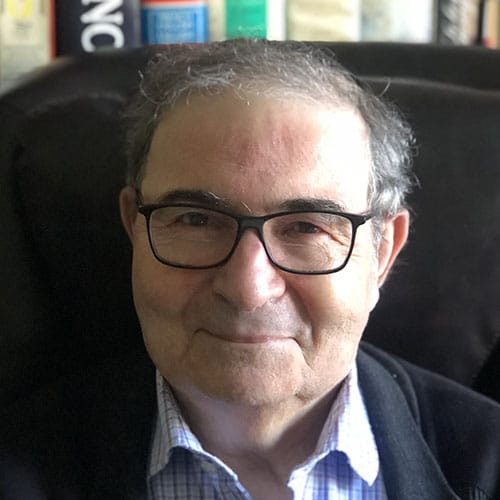 Candles in the Museum’s Hall of Remembrance. US Holocaust Memorial Museum
Candles in the Museum’s Hall of Remembrance. US Holocaust Memorial Museum We are losing Holocaust survivors every day and soon they will all be gone.
Israel has over 160,000 survivors with an average age of 85 and more than 1,000 over the age of 100. About 40 survivors die daily.
In the near future, there will be no witnesses to the Holocaust, no one to confront lies, denial and ignorance with personal experience.
A number of years ago, I listened to a survivor tell his story at a school assembly. It was unforgettable.
“I’ve been invited to speak in your old town, Kitchener-Waterloo. Why don’t you join me?” said my friend, a vibrant Holocaust survivor. Little did I know what a profound experience awaited me.
Howard Kleinberg had been to hell and back. He witnessed the worst there is in humanity in unimaginable situations during the war and made a point of talking about it with young students so they would learn about the war from someone who experienced it personally. It must be unbearably painful for survivors, like Howard, to relive those nightmares.
We arrived at a Catholic high school with more than 2,000 students. He was warmly embraced by the staff, who knew him from previous speaking engagements. The welcome was heartwarming. The staff clearly loved and admired him.
Along with about 50 students enrolled in a world religion course, we were ushered into a hall replete with many large Catholic symbols. Howard, kippah on his head, spoke freely about the horrors he had experienced from the age of five in his small Polish town. He described the pain of losing beloved family members during the war, and his internment in a concentration camp.
When the camp was liberated, he was so weak and ill, he was left for dead. Fortunately, another survivor, a young woman, realized he was still alive. She took care of him for a few days, keeping him alive until medical help arrived and he could be hospitalized. They then lost touch with each other, but by some miracle they both ended up in Toronto. Howard surprised her one day by showing up at her door with flowers to thank her for saving his life. They married and raised a wonderful family. The effect on the students was audible as they were moved by the hopeful ending to such a sad story.
Teenagers, not known for their patience, sat riveted and attentive throughout. The room was silent and the atmosphere electric. Such was Howard’s ability to communicate his experience that I, who have been exposed to so much about the Holocaust, was overwhelmed and deeply moved.
When Howard finished, he took questions. Kitchener, formerly called Berlin, was founded by Germans. One student asked Howard if he hated Germans because of what he endured. He answered that he doesn’t hate, and he never taught his children to hate because he learned that hatred turns people into monsters. Another asked if he ever gave up hope and he replied that he was determined to live to bear witness to what happened during those dark years. When the session was over, the students were in no hurry to leave. Many milled around him, some to talk and others to thank him or offer a compassionate embrace.
That day, I, too, learned important life lessons.
I learned that we don’t know people the way we think we do. Everyone has an inner life and experiences that come out only in circumstances such as the one Howard shared with me that day.
I learned that quiet dignity and frank and honest talk can communicate vital truths across boundaries of age and faith. I learned that truth is alive and well and embodied in brave and strong people who never give up. I learned that life has meaning for those who make of the worst experiences something positive and consequential. I learned that I still have a lot to learn and that I can be inspired by a heroic survivor and friend I came to really know one fall afternoon in a Kitchener Catholic school.
In a Holocaust museum, I once heard a guide, at the end the tour, tell the group: “Now, you know. Now, you are the witnesses.”
We are all, indeed, the witnesses. Now, we are the survivors.
Dr. Paul Socken is Distinguished Professor Emeritus and founder of the Jewish Studies Program at the University of Waterloo.























 More news and opinions than at a Shabbat dinner, right in your inbox.
More news and opinions than at a Shabbat dinner, right in your inbox.